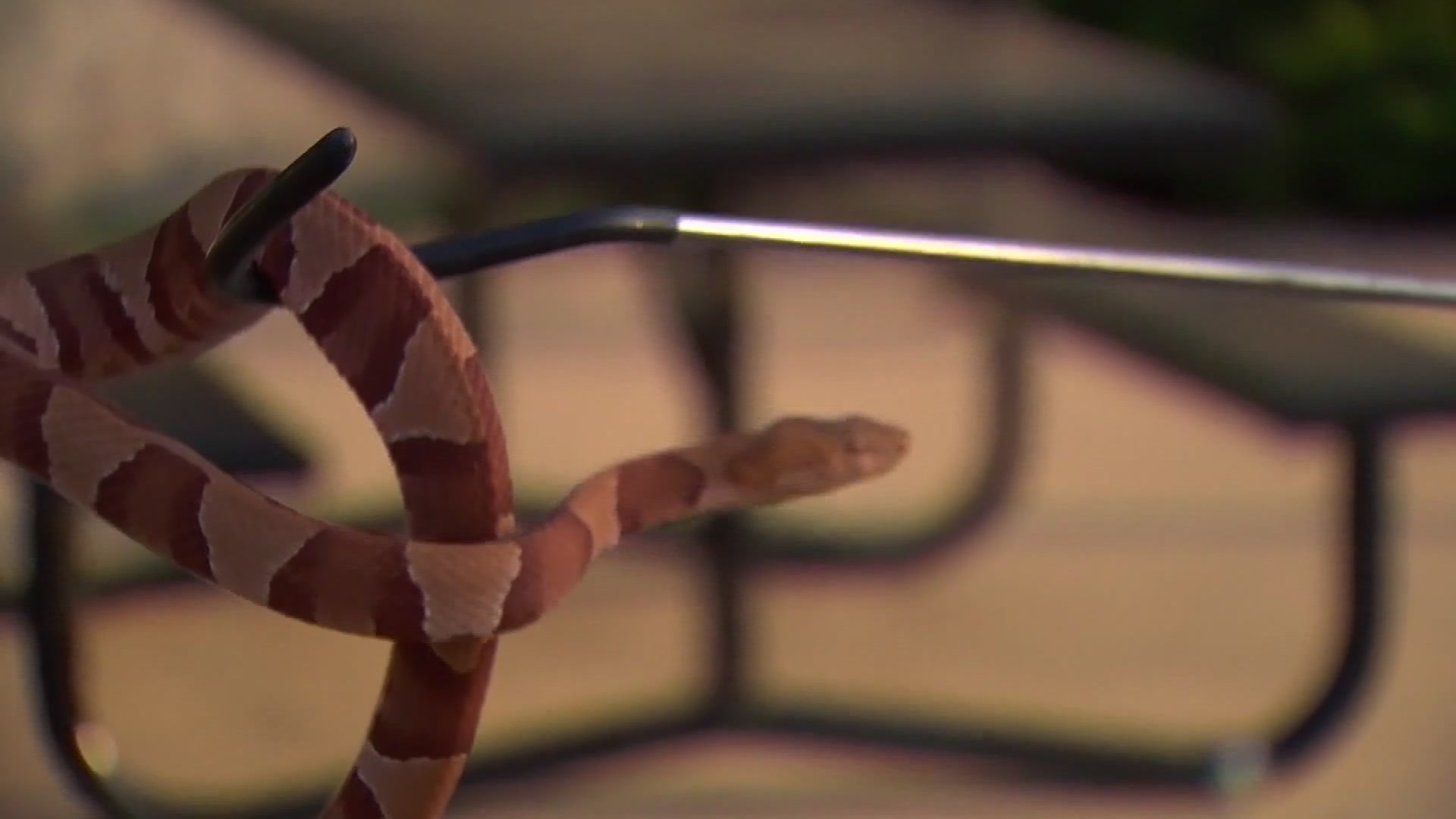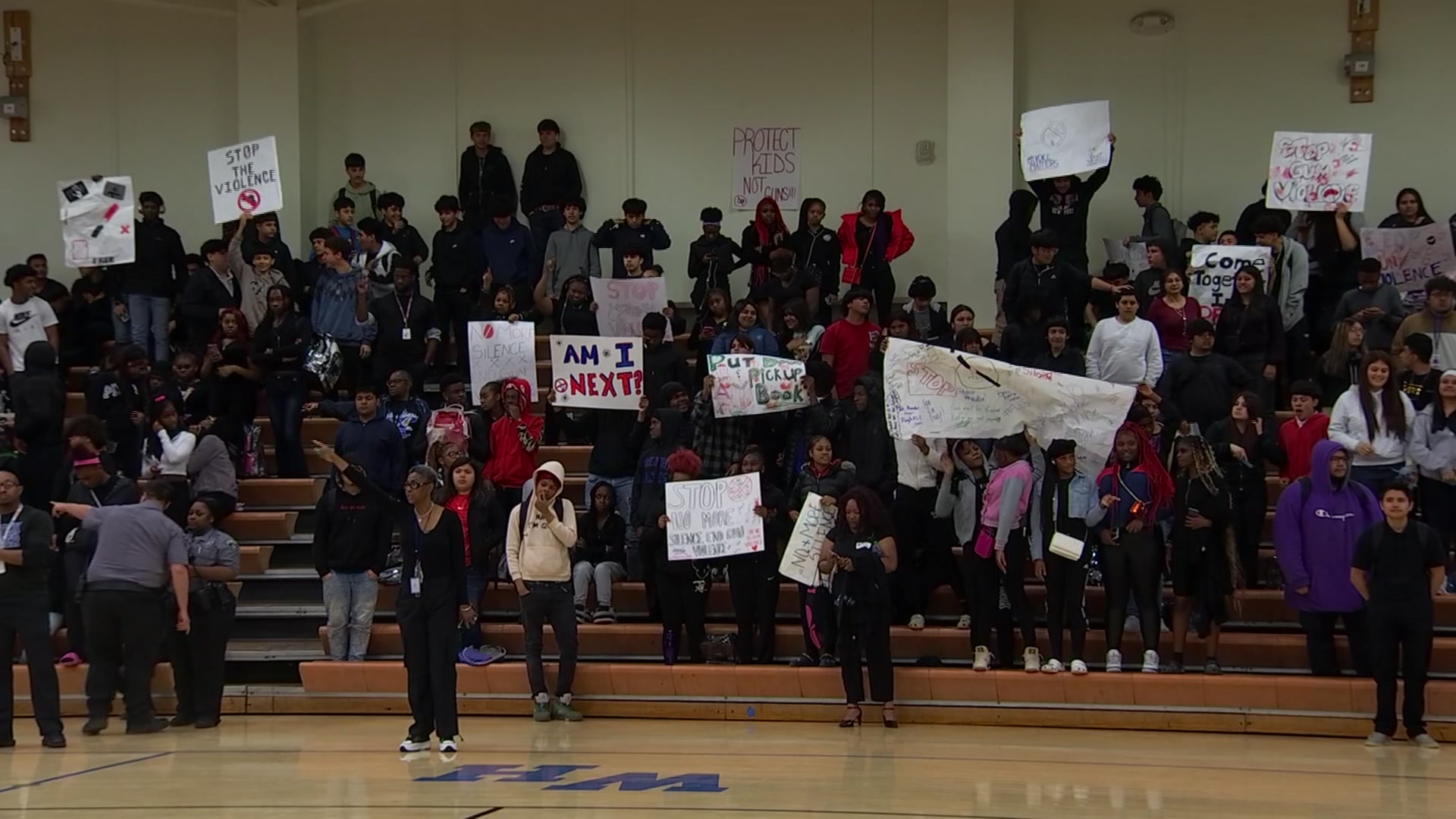New warning signs are posted around a West Plano park where the city learned of at least three incidents involving copperhead snakes this summer. The venomous snakes bit one woman, a dog and ended up in a backyard pool near the park.
The incidents happened in and close to White Rock Trail Park, located west of Preston Road and north of Plano Parkway. The park is surrounded by homes and a golf course.
One neighbor next to the park found a copperhead while reaching in to clean his pool filter last month.
"He was actually under the basket," Greg Rosener said. "My hand was grabbing the basket so had he been in the basket, I would have been bit."
Rosener said another neighbor spent two days in the hospital to be treated for a copperhead bite. The woman was walking her dog off of the paved trail when she accidentally stepped on the venomous snake.
Rosener said his brother's dog suffered a bite to its paw while on a walk in the park, also in July.
"Just be aware that there are snakes in the park," Rosener said. "Stay away from the trees and bushes, stay on the path."
Local
The latest news from around North Texas.
In response to the copperhead sightings and bites, the city installed new signs along the hike and bike trail to warn park users to watch out for snakes, poison ivy, insects and wild animals.
"We want to make sure that people are aware," said Plano Park Services Manager Ron Smith. "We don't own the urban wildlife we can't regulate their behavior or their natural habits."
Smith said the city can't trap and remove the snakes from their natural habitat and points out there are sections of the park where the grass is purposefully kept tall in order to keep wildlife in the park and out of neighborhoods.
"Anywhere where we've got woods, we've got creeks, we've got open space," Smith said. "All of these animals were here long before Plano existed."
Texas Parks and Wildlife does not recommend cities trap snakes in public parks. The snakes enjoy eating cicadas and rodents and serve a purpose in the ecosystem, said urban wildlife biologist Sam Kieschnick.
"They're good snakes, that's a big message," Kieschnick said. "I don't like to use the word aggressive. They're defensive, so if we pester them that's when they sometimes will lash out."
Kieschnick said copperheads are most active in the summer, usually around dusk and at night. He said people should avoid tall grass and piles of brush, where the reddish-brown snakes like to stay.
"They look a lot like leaf litter and that's their best defense is to not be seen, so they will stay put and not be seen through camouflage," Kieschnick explained.
Kieschnick warns people not to try and kill a venomous snake. Most bites happen when someone without training attempts to kill one.
If a copperhead snakes bites you, seek medical help immediately and stay calm to reduce spread of the venom in the bloodstream.
Learn more here.



